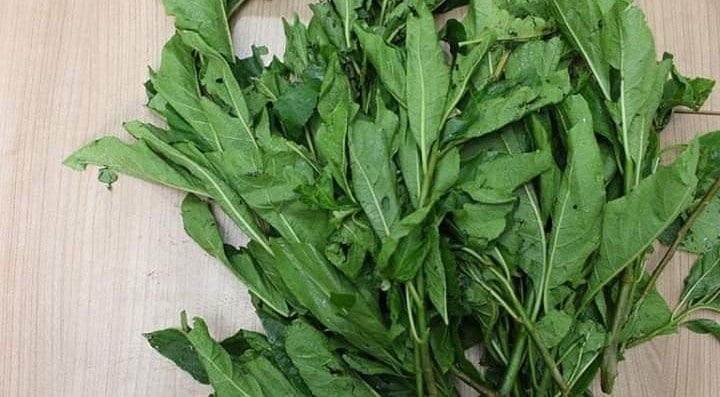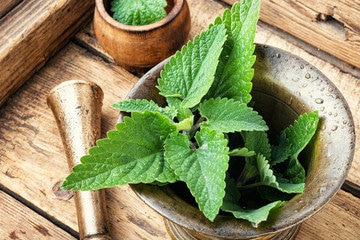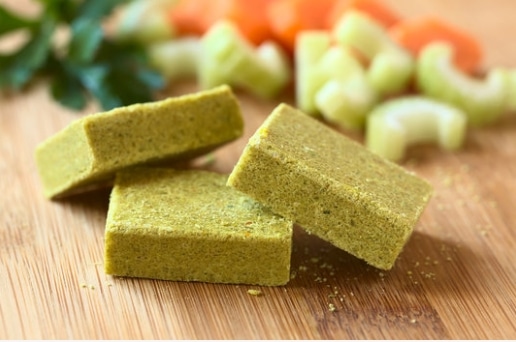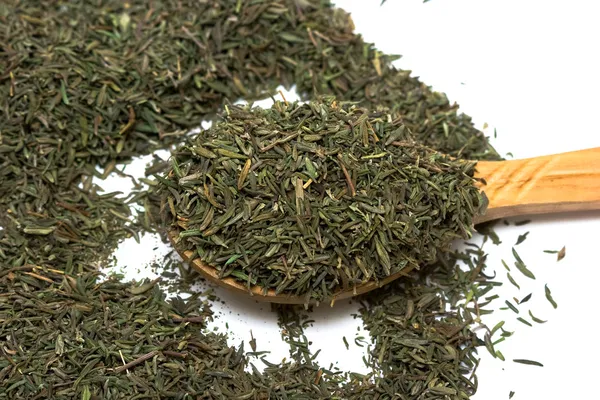Herbs are plants with leaves, seeds, or flowers that are used for flavoring food, medicine, or fragrances. These particular plants are known for their versatile nature as they can be used in preparing meals, cosmetic products, traditional medicines.
Nigeria has one of the largest collections of herbs and medicinal plants in the world, all of which are proven to be effective for treating certain diseases aside from their culinary uses. Today you’ll find out the common Nigerian herbs and their health benefits.
Common Nigerian Herbs and Their Health Benefits
Listed below are some of the popular Nigerian herbs and their health benefits:
1. Moringa Plant

(Yoruba: Ewe Ile or Igbale Igi Iyanu, Igbo: Odudu Oyibo or Okwe Oyibo, Hausa: Zogale)
Moringa is a popular flowering tree known for its diverse medicinal benefits. In fact, it is being regarded as “the miracle tree,” which shows how potent it is when it comes to the culinary, cosmetic, and medicinal world.
That being said, it will please you to know that Moringa plant is an excellent source of amino acids, minerals, vitamins [A, C, and E], and some other vital properties that can help improve your health and overall well-being. The health benefits of moringa are indeed manifold.
As earlier said, there are lots of health benefits associated with the Moringa plant, some of which are summarized below:
i. Full of Antioxidants. Moringa contains a good amount of antioxidant properties, meaning that it can help combat free radicals and molecule that triggers cell damage, inflammation, oxidative stress, and other related conditions. It also has some properties that can help suppress inflammatory enzymes as well as proteins in the human body.
ii. Reduces glucose and lipid levels. When you have excesses of glucose and lipid in your body, it may trigger some complications that may harm your cardiovascular system. The great news is that Moringa plant is capable of lowering the levels of the aforementioned, which will, in turn, boost your cardiovascular health.
iii. Great remedy for several health conditions, including Anemia, Arthritis, Asthma, Constipation, Diabetes, Diarrhea, Fluid retention, Hypertension, Kidney stones, Stomach pain, Stomach, and intestinal ulcers, Thyroid disorders, etc.
iv. Promotes fast wound healing. It exhibits astringent effects, meaning that it can be directly applied to wound for faster healing.
v. Treats fatigue. There are certain properties in Moringa plant that help release energy to the body, making it a great energy booster.
Other health benefits of Moringa plant include but not limited to – Reduced bacterial and fungal infections, Improved eye health, Reduced pain and migraines, Reduced tumor growth, Lowered risk of neurodegenerative diseases related to Alzheimer’s disease, Reduced risk of kidney stones formation.
2. Bitter Leaf

(Yoruba: Ewuro, Igbo: Onugbu, Hausa: Shiwaka)
Bitter leaf, as the name suggests, is an African plant with bitter taste. It is widely used in cooking in typical Nigerian homes, especially in Yoruba and Igbo land.
Beyond its taste, there are a lot of benefits you tend to enjoy when you increase your intake of this leaf. They include the following:
i. Great remedy for stomach ache. Bitter leaf has some properties that can help relieve stomach ache and other related health conditions. All you need do is to either chew on the tender part of the plant stem or leaf stalk. Additionally, you can treat stomach aches with bitter leaf simply by pounding its leaves and squeezing the juicy content in a cup. After that, mix 3 tablespoons of the liquid and a pinch of salt in a cup and then drink it. Aside from stomach ache, bitter leaf is used for treating malaria, typhoid fever, diarrhea, and the host of other related conditions.
ii. Reduces blood pressure levels. With the properties in bitter leaf, it can help lower your blood pressure levels and thus reduce your risk of hypertension. People with high blood pressure can also benefit from bitter leaf as it will help lower the levels of their blood pressure.
iii. Ideal for prostate cancer patients. Prostate cancer usually comes with myriads of symptoms, including difficult and painful urination [scientifically known as dysuria]. On the plus side, bitter leaf, when ingested, helps to relieve these symptoms simply by increasing the flow of urine, relieving pain while also controlling the spread of the neoplastic cells.
iv. Combats pneumonia. Pneumonia is a serious lung inflammation disease developed as a result of bacterial or viral infection, which causes the air sac to be filled with pus, and thus making breathing somewhat difficult. On the plus side, bitter leaf is proven to be effective for treating this lung disease. In fact, there are certain parts of the world where it is being used as a remedy for pneumonia and some other related health conditions.
v. Enhances fertility. Bitter leaf is an ideal food choice for women who find it difficult to conceive. This is because the miraculous leaf exhibits detoxifying effects for preventing the pollution of the antibodies that combat myriads pf diseases initiate tissue repair and regeneration, which in turn improves the fertility of the ovaries.
Other health benefits of Bitter leaf – It is effective for:
- Boosting the blood and lymphatic system
- Treating Insomnia
- Managing diabetes
- Treating infections and diseases such as sexually transmitted infections, eczema, ringworm, itching, allergies, etc.
- Boosting appetite
- Increasing milk production in lactating mothers
- Treating cough and respiratory tract infections
3. Aloe Vera
(Yoruba: Ahon-erin, Igbo: N/A, Hausa: N/A)
Aloe Vera is a homegrown medicinal plant known for its versatility; it can be used for cosmetics, cooking, and more importantly, it has a lot of medicinal uses. Aloe vera can be used for:
- Moisturizing hair and scalp
- Treating skin allergies, sunburn, skin irritations, rashes, dermatitis, and psoriasis
- Treating oral mucositis, mouth ulcers, and canker sores
- Speeding up the healing process of wounds and burn injuries
- Treating constipation and some other related conditions
- Lowering blood sugar level
- Boosting liver function
4. Basil or Scent Leaf

(Yoruba: Efirin, Igbo: Nchuawun, Hausa: Daidoya)
Otherwise known as African basil, scent leaf is a common Nigerian medicinal plant. It is usually planted at home, showing how beneficial it is to the human health.
Health benefits of Scent leaf. It can be used for:
- Relieving colon-related pains and earache
- Treating internal disorders, including diarrhea, dysentery, stomach ache, and vomiting
- Shielding against/combating cold, catarrh, cough, fever, malaria and some other related conditions
- Boosting the digestive health and relieving bloating as well as heartburn
- Treating skin diseases, such as ringworm, skin irritations, rashes, etc
- Treating infections associated with the human teeth
- Preventing heart diseases
- Improving the health of the eyes and mouth
- Strengthening sperm vitality and preventing infertility
5. Girdle Pod
(Yoruba: Irawo Ile, Igbo: Obuobwa or Ogwungwo, Hausa: Gudugal)
Girdle pod is a perennial herb found in virtually all the regional parts of the country. Its botanical name is Mitracarpus scaber, and it is packed with a lot of properties that can help give your overall health a significant boost.
Part of the things you can use this plant for include:
- Treating of scabies, itching, craw-craw, dermatoses, and ringworm and other related skin infections
- Relieving body ache, headaches, toothaches and inflammation
- Treating of certain Sexually-Transmitted Diseases [STDs]
- Getting rid of dandruff
- Treating of eczema
- Treating of hemorrhoids, amennorhea, hepatic, etc
6. Ringworm Bush or Candle Plant
(Yoruba: Asunrun Oyinbo, Igbo: Ogalu, Hausa: N/A)
There’s no way we could discuss Nigerian herbs and their health benefits without featuring this amazing medicinal plant – Ringworm Bush. This is majorly because it contains antibacterial, antifungal, anti-inflammatory, anti-tumor, analgesic, diuretics, laxative and other properties that are severally proven to be effective for boosting human health and preventing certain diseases. Here are some health benefits of ringworm plant.
- Can be used for treating skin diseases and infections, including itching, pruritus, eczema, itches, ringworm, etc
- It is a great remedy for poisonous bites and venereal eruptions
- It improves appetite and relieves constipation
- Can be used for treating asthma, bronchitis, dyspnea, and the likes
- Effective for treating sickle cell anemia, hypertension and diabetes
- Aids digestion and treats intestinal worm infestation as well as gonorrhea
- Helpful in treating cough, cold, acne, venomous bites and impetigo
7. Wild Lettuce

(Yoruba: Efo Yarin, Igbo: N/A Hausa: N/A)
Wild lettuce is among the most common herbs not just in Nigeria but in some other countries of the world. It is known for its healing, sedative, and analgesic qualities, which is why it is found almost every region in Nigeria.
Wild lettuce is severally proven to be effective for:
- Relieving pain and discomfort, including arthritic pain, colic pain, joint pain, muscle pain, and muscle spasms
- Treating digestive-related problems
- Relieving symptoms of premenstrual in women, including anxiety, uneasiness, and pain
- Reducing anxiety and stress levels
- Improving sleep quality
- Treating respiratory diseases, such as asthma, bronchitis, and cough
- Relieving headaches and migraines
- Combating skin infections and diseases, such as itching, irritation
- Improving the elasticity and flexibility of the arteries to prevent/treat atherosclerosis
8. Mint Leaf
(Yoruba: Ewe Minti, Igbo: N/A Hausa: N/A) – Aids digestion, Cures stomach ache, Relieves abdominal cramps, Relieves fever, Combats post-surgery nausea, Treats bad breath, Treats nasal congestion, Boosts immune system, Relieves morning sickness, nausea, and vomiting in pregnant women.
9. Water Leaf
(Yoruba: Gbure, Igbo: Mgbolodi, Hausa: N/A) – Strengthens immune system, Soothes inflammation, Prevents atherosclerosis and heart disease, Enhances cognitive ability, Promotes weight loss, Great remedy for constipation and indigestion, Improves the Blood Clotting, Promotes Heart Health, Repairs Body Tissues, Improves bone and teeth health, Aids digestion, Promotes eye health, to name but a few.
10. Goat Weed
(Yoruba: Imi esu or Akoyunyun, Igbo: Akwuko ewu or Agadi-isi-awo-ocha, Hausa: N/A) – Enhances sexual performance, Treats Erectile Dysfunction (ED) caused by nerve injury, Boosts energy and memory, protects the nerves, Treats Atherosclerosis, Strengthens the immune system, Reduces risk of cancer, Prevents postmenopausal bone loss, Treats ear defects, Great remedy for fever, atherosclerosis, nerve pain fatigue, and osteoporosis.
Bottom Line
It is imperative to learn about the common Nigerian herbs and their health benefits because they can treat numerous ailments. Common Nigerian herbs like goat weed, moringa, bitter leaf and scent leaf have amazing medicinal abilities.
Collins Nwokolo is a human physiologist, writer and health enthusiast. He loves writing helpful articles on health and fitness, which he enjoys sharing with everyone.







